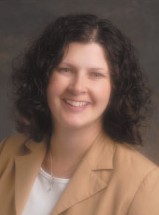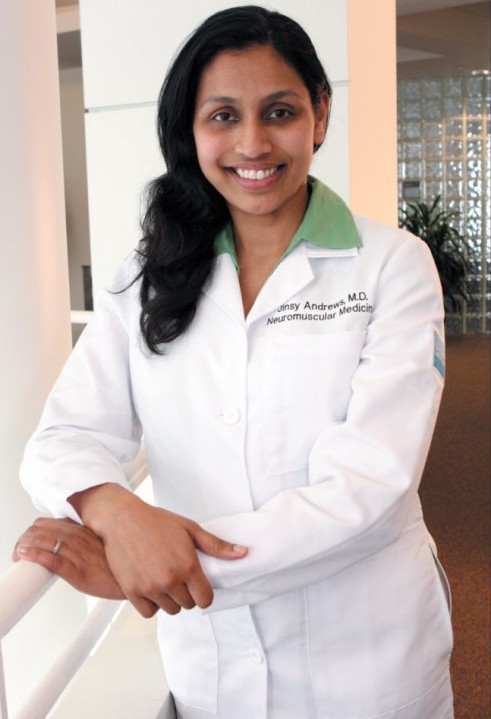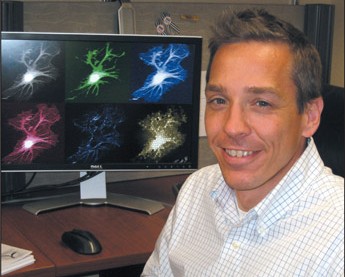
Seeding the Field: Nurturing the Next Generation of MD Researchers

The search for therapies and cures must be accompanied by the cultivation of the best and brightest researchers
All MDA grants have the same basic goal: moving promising treatments through the “drug development pipeline,” from early discoveries in the lab, to clinical trials, to actual therapies that can be prescribed in the clinic.
But some MDA grants are designed to accomplish this goal not only by funding research but by encouraging the “best and the brightest” young scientists to become future neuromuscular disease researchers.
“MDA has a strong commitment to the training of promising young clinical and basic science researchers to ensure that our research mission continues at the highest possible level for the foreseeable future,” explains Sanjay Bidichandani, MDA vice president for research.
MDA relies on two training mechanisms to accomplish this goal: the development grant (DG) and the clinical research training grant (CRTG). These grants pair exceptional mentors with promising grantees to ensure high-quality training and mentoring in neuromuscular disease research. As two-year awards, the DG and CRTG typically cap off eight to 10 years of prior study, which can include earning a Ph.D. and subsequent postdoctoral work; or med school, specialization in neurology, and a fellowship, respectively.
Read on for more information about these innovative training grants and a where-are-they-now look at some former trainees who still are doing neuromuscular disease research.
Development grants (DG)
DGs are awarded to exceptional postdoctoral candidates who have the best chance of becoming independent researchers and future leaders of neuromuscular disease research. The grants fund them through the most critical stage in the career of a basic researcher — the transition from postdoc to independent academic faculty.
MDA considers DG applications from candidates who are members of a research team in the laboratory of an independent (“principal”) investigator, under whose guidance the applicant will have the opportunity (and the institutional resources) to conduct a neuromuscular disease project.
Applicants must hold a Doctor of Medicine (M.D.), Doctor of Philosophy (Ph.D.), Doctor of Science (D.Sc.) or an equivalent degree. DG awards can be made for one, two or three years, with a maximum dollar amount set at $60,000 per year.
Clinical Research Training Grants (CRTG)
MDA’s translational research program is focused on research that moves promising therapies forward into clinical trials. It also awards clinical research training grants to exceptional neurology residents or neuromuscular fellows.
The ultimate goal of the CRTG program is to provide promising young clinicians with the opportunity, training and inspiration needed to become experts in all aspects of conducting clinical research and human clinical trials focused on neuromuscular disease.
Trainees are expected to design their own educational plans and to participate, under the supervision of a mentor, in the development and coordination of a clinical research project. At minimum, trainees gain experience in the basic epidemiological methods of clinical research, ethical and legal issues, and the principles involved in monitoring patient-oriented research, including regulatory requirements and quality assurance.
Recipients of CRTG awards also are encouraged to acquire knowledge of research technologies, dataset management, bioinformatics and other research tools, as well as to develop the communication and collaboration skills necessary for successful investigator development.
Clinical research training grants are awarded annually to two qualified recipients, in the amount of $90,000 per year for two years.
CRTG applicants must hold a Doctor of Medicine or Doctor of Osteopathy degree and be licensed to practice medicine; and be board eligible or board certified in neurology, child neurology or physical medicine and rehabilitation at the time of the award.
Awardees are selected based on the quality of the applicant, the quality of the mentor and training environment, and the quality of the educational plan.
DGs and CRTGs: An investment in the future
“Many of the diseases covered by MDA are complex and rare, and MDA’s CRTG program encourages researchers to specialize in those diseases,” says neurologist Jinsy Andrews, a former CRTG recipient and current director of the Research and Clinical Trials Unit at the Hospital for Special Care (HSC) in New Britain, Conn.
Without the secured salary and specialized experience CRTGs and DGs provide, very few people would familiarize themselves with neuromuscular diseases, agrees neurologist and longtime MDA grantee Hiroshi Mitsumoto, director of the Eleanor and Lou Gehrig MDA/ALS Center at Columbia University in New York. (Mitsumoto was Andrews’ mentor when she had a CRTG award from 2007-2009.)
The grants’ most important purpose, he says, “is to attract capable young physicians, and help pave their way to becoming highly specialized researchers and clinicians in neuromuscular diseases.”
Receiving a DG or CRTG can propel young investigators’ careers, giving them an advantage when applying for faculty positions at academic institutions. The extra time spent in research or clinical training makes them more likely to receive additional grants for continuing their practice.
“Very few associations invest in the training of future researchers,” says MDA’s Bidichandani. “That is a rather unique contribution by MDA.”
That’s true, affirms Alan Pestronk, professor in the department of neurology at Washington University School of Medicine, and a former mentor for a DG recipient.
“Over the past decades, MDA has been the most important private funding organization in the United States in assuring the continued population of talented researchers, and the carrying out of important research, on diseases of muscles and nerves.”
Christen Shoesmith
“The CRTG clearly helped develop my career and gave me the tools to be successful in my neuromuscular academic practice.”
Christen Shoesmith was among the first to be awarded an MDA clinical research training grant, which became effective July 1, 2005, and covered her work through June 30, 2007.
Shoesmith’s CRTG-supported project was “a focused study assessing cognition in amyotrophic lateral sclerosis (ALS).”
In 2010, Shoesmith became clinic director at the Motor Neuron Diseases Clinic at London Health Sciences Centre in London, Ontario, Canada.
As the clinic’s director, Shoesmith is responsible for the care of all those with ALS, other motor neuron diseases and other neuromuscular diseases. She directs clinical research trials and studies there as well.
“Our site remains one of the most highly regarded ALS centers in Canada,” Shoesmith says. The facility is the site of a number of clinical trials, and Shoesmith currently is the site principal investigator for both the dexpramipexole and ceftriaxone clinical trials in ALS.
Teaching also has been an important component of Shoesmith’s career. She’s assisted in the instruction of six neuromuscular fellows and one ALS fellow. She also instructs neurology residents in the EMG laboratory and in the neuromuscular clinic at London Health Sciences Centre, and has lectured on ALS for the past three years.
Shoesmith credits her MDA CRTG award with providing her the opportunity to develop clinical expertise in neuromuscular diseases, and also to develop a specific focus for her current clinical practice.
“The CRTG program allows individuals to specialize in neuromuscular disease, while also developing a clinical research interest,” she says, adding that individuals with muscle diseases and the neuromuscular research field as a whole benefit from CRTGs because “the awardees are highly motivated individuals who will produce results and publications.”
Shoesmith says the success of MDA’s CRTG program has inspired other organizations to create similar programs.
“In particular, ALS Canada has developed a clinical fellowship training program which mirrors the MDA CRTG program,” she says. “This type of program creates neuromuscular clinicians who prefer to stay in an academic career path and conduct neuromuscular research.”
Shoesmith notes that her career surely would have followed a different path if not for her CRTG award.
“Without the CRTG award, I likely would have worked as a community neurologist with a particular interest in neuromuscular disease,” Shoesmith says. “Obtaining this award opened many doors for me.”
Jinsy Andrews
“The MDA CRTG really allowed me to gain a strong educational background in research and provided extensive hands-on experience with a seasoned mentor.”
Without the two-year clinical research training grant (CRTG) she received from MDA, “I doubt that I would have an opportunity to be actively involved in research for neuromuscular disease,” says neurologist Jinsy Andrews, director of the Research and Clinical Trials Unit at the Hospital for Special Care in New Britain, Conn.
Andrews’ CRTG, the “David A. Gardner Neuromuscular Research Fellow” award, supported her research and training from July 1, 2007 to June 30, 2009.
She describes her time as a CRTG recipient as “an exciting two years that have been absolutely critical to my development as an independent clinical investigator in the field of neuromuscular disease.”
The grant provided her with a “protected” period of time to focus on structured and well-rounded research education and experience sub-specialization training in neuromuscular disease.
“This level of training has given me an exceptional edge in conducting clinical trials and research efficiently and responsibly,” Andrews says.
Andrews studied under the mentorship of neurologist and longtime MDA grantee Hiroshi Mitsumoto and participated as a co-investigator in an MDA-funded project, receiving hands-on experience in such aspects of clinical research as coordinating staff and recruiting participants.
During her first year of fellowship, Andrews developed and was the principal investigator of her own project, “An open-label, pilot study of lithium in ALS.” Results from the study were accepted for presentation at the prestigious American Academy of Neurology (AAN) meeting in Seattle in April 2009, and again at the International MND/ALS Symposium in Berlin, Germany, in December 2009.
Andrews also had the opportunity to serve as site principal investigator for a sponsored multicenter study evaluating the experimental treatment KNS-760704 in ALS, for which results were presented in Toronto at the AAN meeting in 2010.
As the director of the Research and Clinical Trials Unit (RCTU) at Hospital for Special Care (HSC), Andrews says her overall vision is to help find effective treatment for complex neuromuscular disease and to find ways to improve care and quality of life for patients and their families.
Under her direction, HSC’s Clinical Trials Unit has become a participating site for the NIH-sponsored multicenter trial of ceftriaxone in ALS, and the only facility in Connecticut offering clinical trials for ALS participants.
The RCTU also has received funding to develop a comprehensive practice geared to the complex medical and social needs of pediatric patients with neuromuscular diseases and their families.
Like many in the neuromuscular disease field, Andrews recognizes the continuing need for new investigators and clinicians to populate the field of clinical research.
“The MDA CRTG provides an incentive for young people to develop their research career and education,” she says.
“The individuals who have received this award have become well-trained, active researchers in their given fields.”
Bob Baloh
“My only hope is that they will be able to provide even more of these awards to drive the future of neuromuscular disease research.”
“MDA was the first funding agency to take a chance on me as a junior researcher by providing support for career development,” says Bob Baloh, now an assistant professor of neurology at Washington University in St. Louis and a member of MDA’s Medical Advisory Committee.
Baloh’s research was supported by an MDA DG grant from July 1, 2006 through June 30, 2009. His current work is partially funded by an MDA research grant.
“In my particular case,” Baloh says, “this did not affect my choice of a line of research since I had already completed a fellowship in neuromuscular diseases, but it did allow me to focus my efforts and have protected research time.”
Alan Pestronk, a professor in the department of neurology at Washington University School of Medicine in St. Louis, served as one of Bob Baloh’s two DG mentors. Pestronk notes that Baloh is an excellent example of how the DG program supports “superb” young physicians who often have difficulty obtaining sufficient research funding in the early stages of their careers.
Baloh’s success, Pestronk says, is indicative of how this kind of program stimulates young physicians to develop into independent neuromuscular disease researchers.
Baloh’s MDA development grant supported a set of experiments designed, among other things, to produce a mouse model of Charcot-Marie-Tooth disease (CMT) caused by mutations in the mitofusion 2 gene. In 2009, with colleagues, he reported the development of another specialized research mouse — the TDP43 ALS research mouse model, which is widely expected among the ALS research community to help advance understanding of that complicated disease.
“I believe the purpose of MDA’s DG program is to nurture young researchers by providing them financial support at a critical time in their career,” Baloh said. “I have no doubt that it is fulfilling a purpose.”
Clearly, it would have been harder to be successful had it not been for his DG award, Baloh said, noting that he would have lacked the independent funding that allowed him the freedom to develop a self-sustaining research program.
“MDA’s DG program is critical because often the most challenging time to obtain research funds is at the beginning of your career,” Baloh said. “If it weren’t for this program and others like it, it is almost certain that there would be fewer researchers able to do, or interested in doing, neuromuscular research in the future.”
MDA Resource Center: We’re Here For You
Our trained specialists are here to provide one-on-one support for every part of your journey. Send a message below or call us at 1-833-ASK-MDA1 (1-833-275-6321). If you live outside the U.S., we may be able to connect you to muscular dystrophy groups in your area, but MDA programs are only available in the U.S.
Request Information